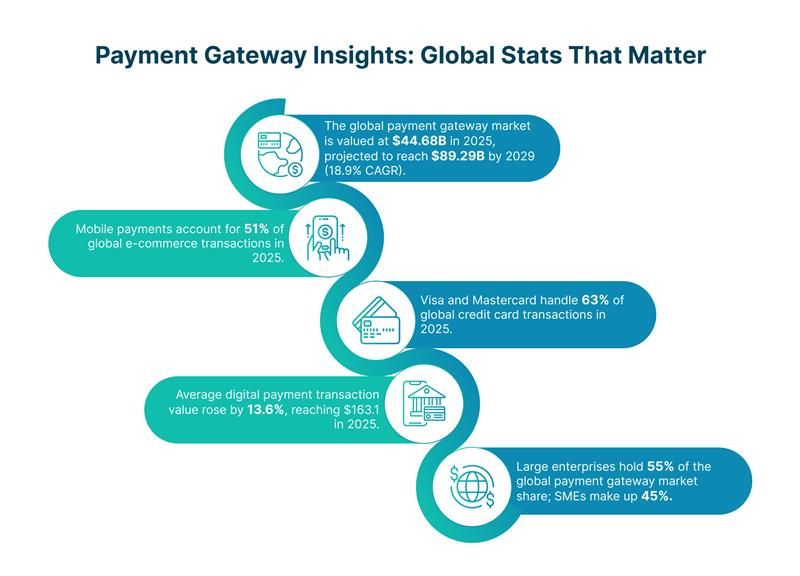Payment Reconciliation
Multi-Gateway settlement reconciliation: Simplifying complex payment ecosystems
Simplify complex payment operations through multi-gateway settlement reconciliation for greater transparency and efficiency.

Amrit Mohanty
Sep 16, 2025 (Last Updated: Sep 30, 2025)

Ever tried juggling three or five different payment gateways all at once? It’s like managing several conversations at a noisy party. Where you have to keep track of who said what and who owes who can get pretty overwhelming.
For businesses growing globally and digitally, this is the exact challenge in payment processing. Multi-Gateway Settlement Reconciliation is the quiet powerhouse behind the scenes, making sure every dollar lands where it should. So, no missing payments, no double charges, no headaches.
If payments on multiple platforms sound familiar, you know the struggle: complex data sprawled across systems, scattered settlements, and the constant hunt to get your books to actually balance. Let’s understand why this process is a must-have, how platforms such as Optimus are transforming it, and why it might just be the smartest move in your finance playbook.
What is multi-gateway settlement reconciliation?
At a high level, reconciliation involves matching and verifying. Multi-Gateway Settlement Reconciliation is the process where an organization lines up its transaction data from a variety of payment gateways and compares that data to its internal records and bank statements to ensure every payment that was captured, refunded or charged back is accounted for appropriately.
With an average business handling 3 to 5 payment gateways to boost transaction success and global reach, the volume and diversity of transaction data explode. Take the payment lifecycle: authorization, clearing, settlement, and post-settlement events, all must align perfectly across multiple systems for the books to balance.
McKinsey forecasts global payments revenue exceeding $3 trillion by 2026, highlighting the massive scale and complexity underlying modern digital payments. This surge only makes manual reconciliation more impossible without automation.
Why is it essential in complex payment ecosystems?
Once a customer hits ‘pay,’ you’d expect a smooth path for money to move from their bank to yours. But in reality, it’s a maze of currency exchanges, fees, chargebacks, partial refunds, and sometimes delays. Each payment gateway operates with different settlement schedules, fee structures, and reporting formats.
According to McKinsey, companies can lose 5% or more of revenue annually due to inefficiencies and errors in payment processing and reconciliation. These losses compound when manual processes struggle to keep up with high transaction volumes. Without precise reconciliation, businesses face cash flow uncertainty, regulatory risks, and customer dissatisfaction and these are the outcomes nobody wants.

A clean reconciliation process confirms that the money settled in your bank matches the validated sales, helping businesses maintain financial integrity and avoid revenue leakages.
How technology simplifies reconciliation
Automation is a true differentiator in complex reconciliation requirements, especially in multi-gateway situations. According to Deloitte, finance operations automation may reduce manual processing activities by a whopping 70%, moving Finance teams from tedious reconciliation work to more strategic work.
Advanced platforms extract data from all integrated payment gateways, standardize it in different formats, and automatically match transactions processed in internal ledgers and bank statements.
- Multi-currency conversions and exchange rate fluctuations
- Fees and merchant discount rate (MDR) deductions
- Chargebacks and refunds processed days or weeks later
- Fraud detection via anomaly scanning technologies
Such automation not only speeds up reconciliation but also eliminates human error, ensuring financial accuracy at scale.
Optimus: Elevating multi-gateway reconciliation with AI
Optimus takes reconciliation to the next level with an AI-powered approach designed to simplify even the messiest of payment back-office workflows.
- Real-Time anomaly detection: AI flags suspicious transactions proactively, helping mitigate fraud and operational risks.
- Scalability without scaling teams: Optimus handles operations spanning multiple countries, currencies, and gateway partners without the need for proportional hiring.
- Regulatory compliance & security: PCI DSS-compliant, it ensures your payment data stays secure in regulated environments.
- Seamless integration: Connects effortlessly with your payment gateways, ERP, accounting, and banking systems for end-to-end process visibility.
As confirmed by McKinsey’s 2024 Global Payments Report, leveraging AI and automation is becoming essential as payment ecosystems grow more complex and volume surges globally.
What are the business benefits?
By adopting Multi-Gateway Settlement Reconciliation platforms like Optimus, companies unlock multiple strategic advantages:
- Zero Revenue Leakage: Accurate transaction matching stops loss of income due to missed or double payments.
- Lower Operational Costs: Automating costly manual processes reduces finance team workload and overheads.
- Enhanced Cash Flow Visibility: Real-time data and reporting empower faster financial decision-making.
- Improved Compliance: Detailed audit trails satisfy regulatory and internal control requirements.
- Better Customer Experience: Faster issue detection and resolution minimize payment-related customer complaints.
These outcomes translate to financial resilience and agility, crucial in today’s fast-paced payment landscape.
Conclusion
Multi-Gateway Settlement Reconciliation may sound like dense finance jargon, but it is the essential foundation holding together today’s omnichannel payment ecosystems. It transforms the chaos of multiple gateways, currencies, fees, and settlements into a streamlined, clear financial picture.
With AI-powered platforms such as Optimus, businesses can move beyond drowning in spreadsheets to confidently manage cash flow with unmatched accuracy, speed, and security.
For organizations managing multiple payment gateways, adopting intelligent reconciliation technology is not just an upgrade but a business imperative.
Discover how Optimus can simplify your finance back-office, reduce operational costs, and boost productivity across regions and currencies without coding and with PCI DSS-compliant security.
Visit optimus.tech to learn more and request a demo. Transform complexity into clarity and inefficiency into growth with Optimus.

